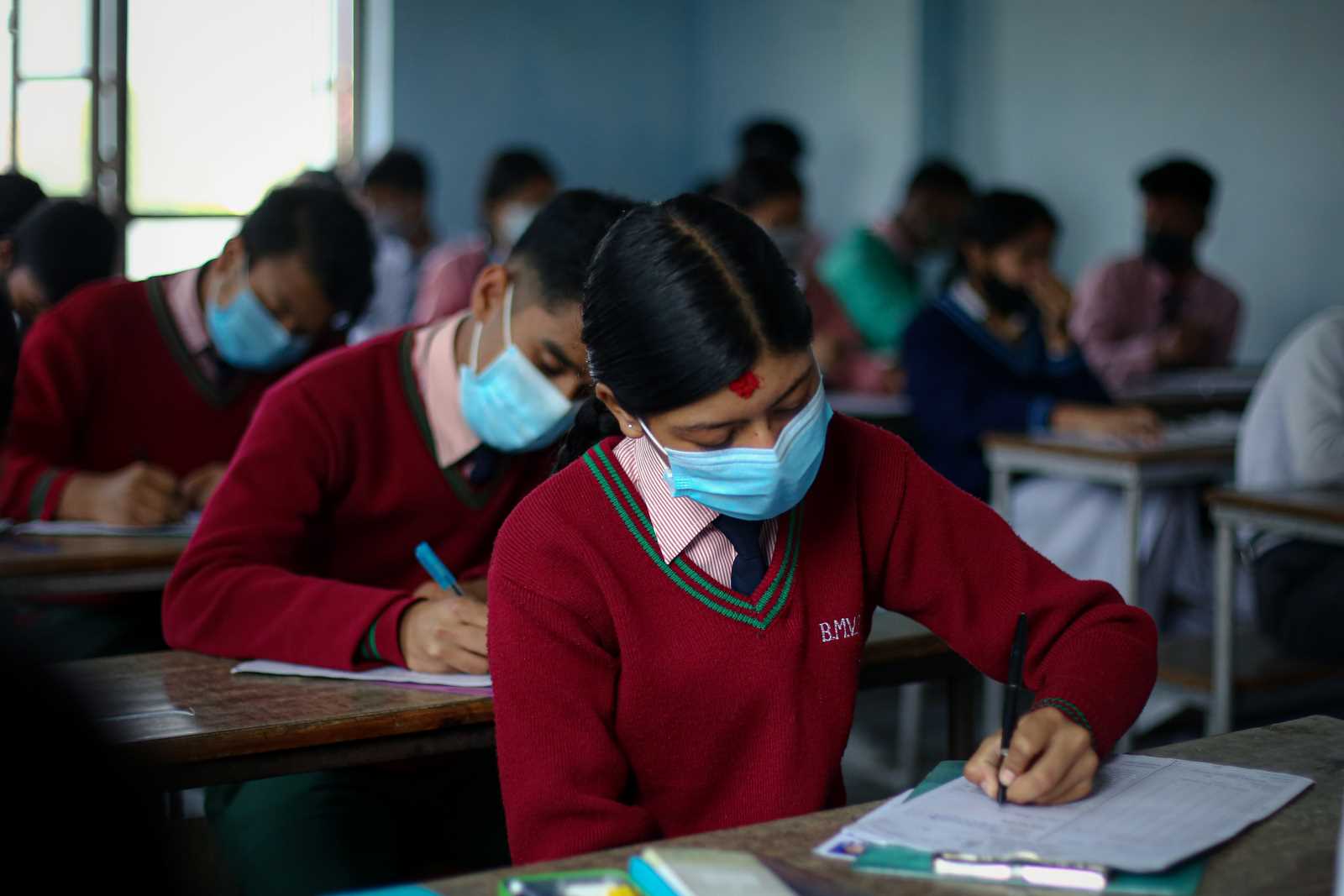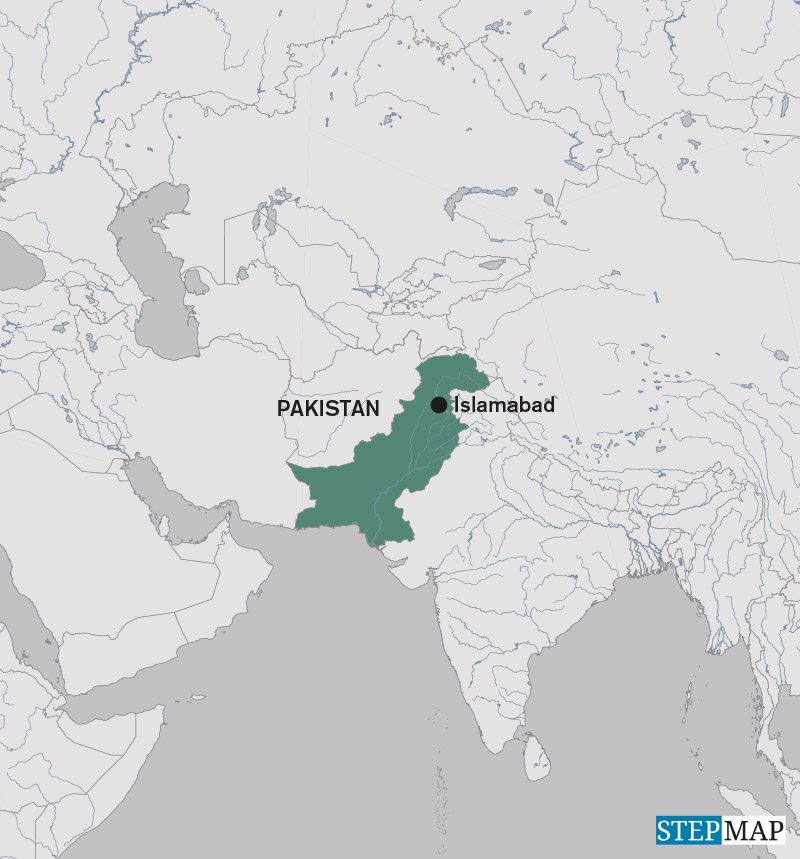Rule of law
Improving rape victims’ access to the courts

In January 2022, Ayesha Malik became the first female justice of Pakistan’s Supreme Court. Her appointment shows that gender justice is making progress. However, even before rising to the top court, she had already done a lot to improve women’s access to justice.
As a judge of the Lahore High Court, Justice Malik passed a ground-breaking judgement in 2021. It made the prospect of filing cases against perpetrators of sexual violence less frightening. She ruled that virginity testing violated a victim’s fundamental rights of life, equality, dignity and privacy, which are protected by Pakistan’s Constitution. Consequently, this judgment made a rape victim’s prior sexual history inconsequential in the prosecution of the crime.
Virginity tests were previously the norm in rape cases affecting unmarried women and girls. They were deeply humiliating. A doctor inserted two fingers into the vaginal cavity and assessed how easy and pain-free that was. If he concluded that the hymen had been torn before the reported offence, the victim would be labelled as “accustomed to having intercourse”, “immoral” or “unchaste”. Lack of bruises further corroborated the biased assessment. All too often, courts accepted such information and dismissed rape cases entirely. Even when perpetrators were punished, sentences would be reduced if the victim’s reputation seemed dubious. Typically, her reputation would suffer long term.
Justice Malik’s judgement spelled out that no scientific evidence justifies the practice of virginity tests. In male-dominated Pakistan, the vast majority of judges are men. Last year, she was one of only six women among the 115 judges of Pakistan’s five High Court. The Lahore High Court has jurisdiction over Punjab, but the judgement argued that virginity testing should be abolished across the nation.
Impact at the national level
The message resonated. The Supreme Court later followed the example, holding that virginity testing has no relevance in cases of sexual violence and that referring to a victim’s sexual history violates her rights to life, liberty, privacy and dignity. Soon after, the provincial governments of Punjab and Sindh ordered health departments to stop virginity tests.
With Justice Malik’s appointment at the Supreme Court, we hope that the courts will treat victims of sexual violence with more respect in other ways too. For example, there are often legitimate reasons behind delays in reporting a crime to the police. The general assumption is that victims immediately go to the police unless they have something to hide. This assumption must be questioned. Any hesitation to file an official first information report is often read as a sign of prior friendship and even consent to the sexual act. In one case, the Sindh High Court decided that a paralysed woman had consented to her aggressor’s action because she did not inform her family and the police immediately.
Why victims stay silent
The real reason why rape victims often stay silent is completely different, of course. Sexual violence deeply hurts a victim’s mental health. The experience of utter helplessness and vulnerability is traumatising. Moreover, the violation of personal privacy causes shame. Victims are often unable to tell others what has happened to them. They even struggle to share it with people who are close to them. Things are especially difficult where sex education is poor, because teenagers, for example, struggle to understand what has happened to them. Moreover, many were never told that they have a right to say “no”, even when someone of high standing makes sexual advances they do not welcome (see Mahwish Gul on www.dandc.eu).
The prospect of having to inform strangers – including police officers, lawyers and judges – is in itself frightening. The full truth is that legal procedures all too often reinforce the trauma, especially when victims once more feel exposed, shamed and abused. For these reasons, rape is underreported around the world.
Where judicial proceedings exacerbate suffering, impunity is likely. Where crimes regularly go unpunished, people do not feel safe. If a society is to escape the vicious cycle, sexual violence must be prosecuted and victims must trust the judicial system. Justice Malik’s High Court ruling has allowed Pakistan to take important steps towards building such trust.
This is not the first step towards improving access to justice for victims of sexual violence. In 2016, the government of Prime Minister Nawaz Sharif passed legislation that improved the situation for rape victims. Important aspects included:
- a prohibition to disclose a victim’s identity to protect her from public humiliation,
- more protection of female witnesses and
- heavier sentences for perpetrators who abused minors and disabled persons as well as those who misused positions of authority to commit rape.
More generally speaking, the rule of law has been becoming stronger since 2008 in Pakistan in many ways, though there is backsliding too. It matters, however, that Pakistan now has its third consecutive elected government and saw peaceful transfers of power in 2013 and 2018. Several new laws offer protections against gender-based crimes and also support to the vulnerable communities. Moreover, citizens are becoming more organised and mobilised. The annual Aurat March (Women’s March) which takes place across Pakistan on the International Women’s Day is an example.
More must surely happen – including improving judicial responses to sexual violence. As in many other countries, the morality and chastity of victims still tends to get substantial attention in Pakistani courts. For example, judges take interest in what clothes a victim was wearing. Donning bright colours, or wearing “revealing” clothes are read as signs of immorality. Being in a public space without a chaperone is seen as provoking trouble, especially after dusk. Depressingly, courts often focus more on a victim’s supposed character than the violence perpetrated against her.
Problems like this exist everywhere. In Pakistan, things are improving, making daily life a little bit safer for women and girls.
Marva Khan is assistant professor of law at LUMS (Lahore University of Management Sciences) and co-founder of the Pakistani Feminist Judgments Project.
marva.khan@lums.edu.pk












